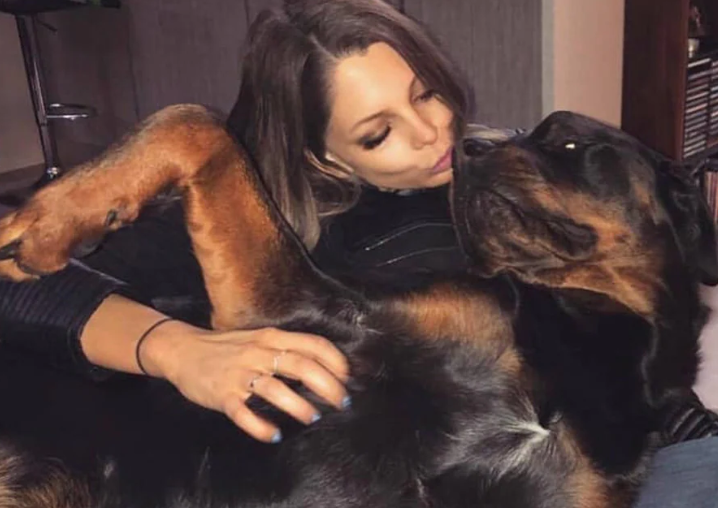Bloodhounds: Behaviors of Concern
Bloodhounds are known for their gentle and loving nature, but like any breed of dog, they can develop behavioral problems if they are not adequately trained and socialized. Some of the most common behavioral concerns in bloodhounds include:
- Separation anxiety: Bloodhounds are pack animals and can become anxious when left alone for long periods. This anxiety can manifest in various ways, such as barking, whining, destructive chewing, and accidents in the house.
- Barking: Bloodhounds are also known for their loud bark, which they use to communicate with their pack members. However, excessive barking can be a problem, especially if you live in a close-knit neighborhood.
- Aggression: Bloodhounds are generally not aggressive dogs, but they can become aggressive if they feel threatened or are not properly socialized. Attacks can be directed at people, other dogs, or both.
- Destructive chewing: Bloodhounds are intelligent dogs with a lot of energy, and they can become dangerous if they are bored or anxious. Destructive chewing can damage furniture, clothing, and other belongings.
- Running away: Bloodhounds have a strong sense of smell and can be easily distracted by exciting scents. This can lead them to run away, even if they are well-trained.
In addition to these general behavioral problems, bloodhounds can also be prone to certain health conditions affecting their behavior. For example, bloodhounds are prone to hip dysplasia, which can cause pain and discomfort. This pain can make bloodhounds irritable and aggressive. Bloodhounds are also prone to certain neurological disorders, which can cause them to exhibit unusual behaviors such as pacing, staring, and aggression.
If you are concerned about your bloodhound’s behavior, it is essential to consult with a veterinarian or animal behaviorist. They can help you identify the problem’s underlying cause and develop a plan to address it.
Here are some tips for preventing and addressing behavioral problems in bloodhounds:
- Start training and socialization early. Bloodhounds are intelligent dogs, but they can also be stubborn. It is essential to start training and socializing your bloodhound puppy as early as possible. This will help them to learn basic obedience commands and to become comfortable around other people and animals.
- Provide plenty of exercise and mental stimulation. Bloodhounds are active dogs and need plenty of exercise. They also need mental stimulation to keep them from getting bored and destructive. Try taking your bloodhound for long walks, playing fetch in the park, or enrolling them in an obedience class.
- Be consistent with discipline. Bloodhounds need to know what is expected of them. Be compatible with your domain and reward good behavior.
- Create a safe and comfortable environment. Bloodhounds need a safe and comfortable place to live. Please provide them a comfortable bed, plenty of food and water, and access to a fenced-in yard.
- Monitor your bloodhound’s behavior. Pay attention to your bloodhound’s behavior and look for any signs of problems. If you are concerned about your bloodhound’s behavior, consult a veterinarian or animal behaviorist.
Here are some specific tips for addressing common behavioral problems in bloodhounds:
- Separation anxiety: If your bloodhound has separation anxiety, there are a few things you can do to help. First, try to increase the time you leave them alone gradually. Start by going them alone for a few minutes and slowly work up to more extended periods. You can also give your bloodhound a KONG toy filled with peanut butter or another treat to keep them occupied while you are away.
- Barking: If your bloodhound barks excessively, try to identify the trigger for the barking. Are they barking at people or other animals? Are they bored or anxious? Once you have identified the trigger, you can start to work on addressing it. For example, if your bloodhound barks at people, try desensitizing them by gradually exposing them to people in a controlled environment.
- Aggression: If your bloodhound is aggressive, it is essential to consult with a veterinarian or animal behaviorist. They can help you to identify the underlying cause of the aggression and develop a plan to address it. Treatment for attack may include training, medication, or a combination of both.
- Destructive chewing: If your bloodhound is chewing destructively, try to give them plenty of other things to chew on. You can also try to identify the underlying cause of the chewing. Are they chewing because they are bored or anxious? Once you have identified the reason, you can start to work on addressing it. For example, if your bloodhound chews because they are bored, try to give them more exercise and mental stimulation.
- Running away: If your bloodhound runs away, it is essential to take steps to prevent them



